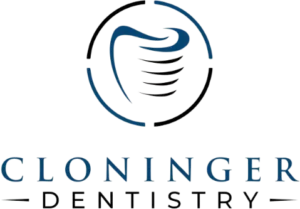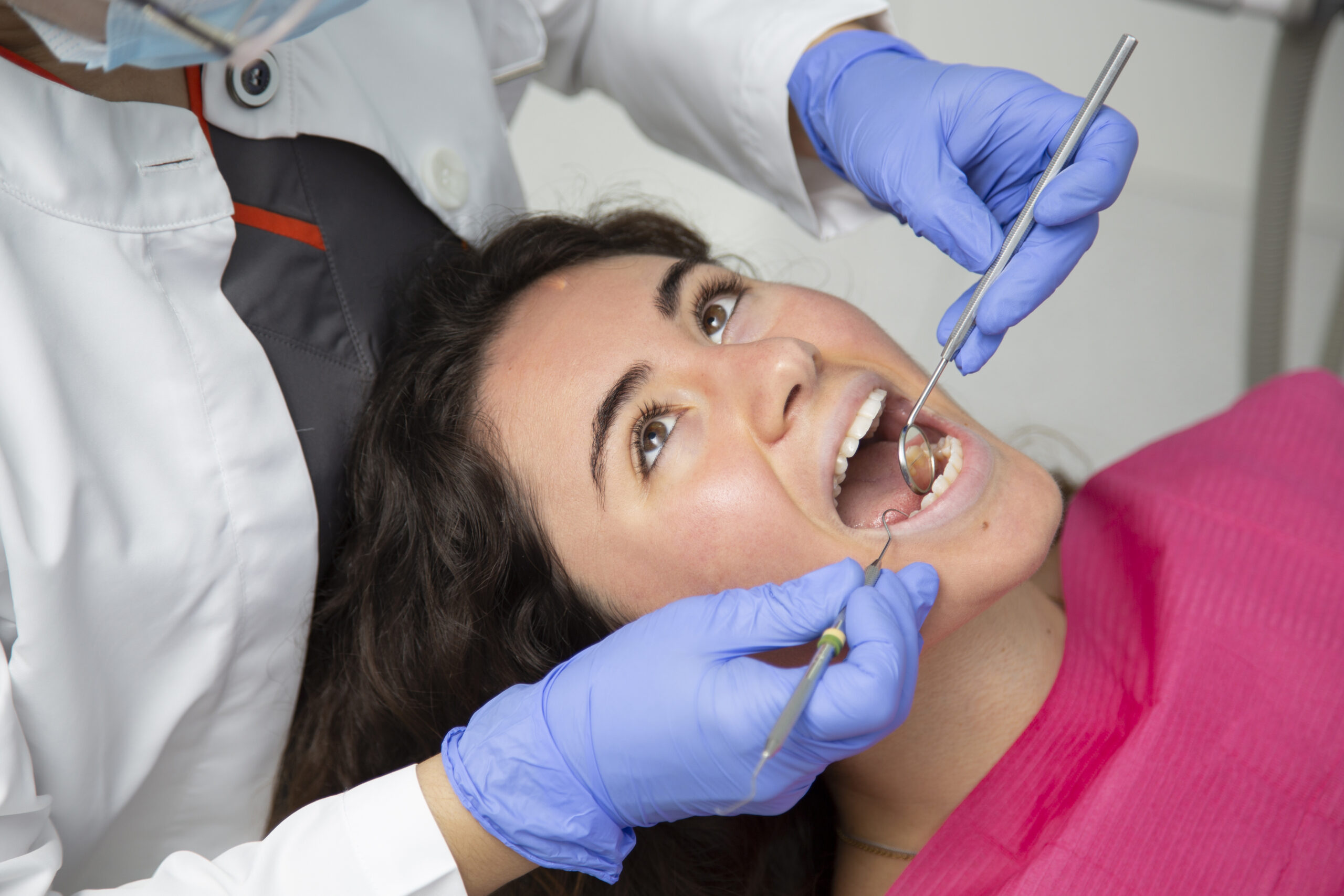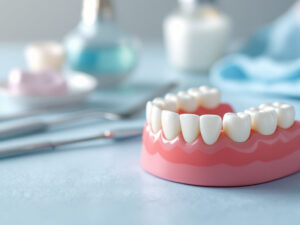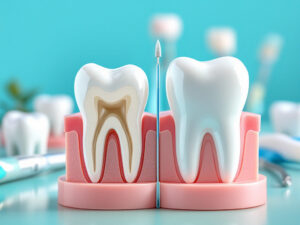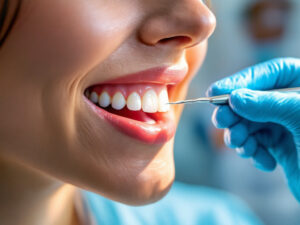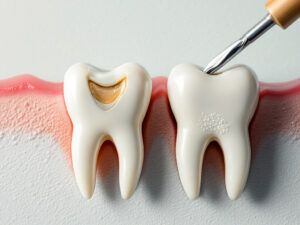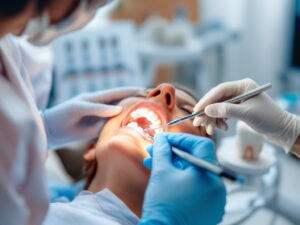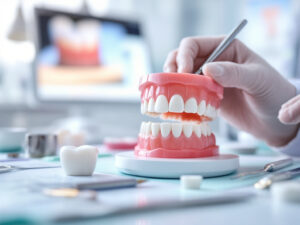When you contemplate wisdom tooth removal for yourself or a loved one, you want to ensure that every aspect of the procedure, from consultation to aftercare, is handled with expertise and compassion. Often, these third molars can lead to pain, overcrowding, or potential infections, which is why many dental professionals recommend removing them in a timely manner. In fact, about five million people in the United States undergo wisdom tooth removal each year, whether for preventive measures or to address existing dental issues (Knoxville Oral & Maxillofacial Surgery). You deserve a practice that not only understands the technical precision required but also appreciates your personal comfort and long-term oral health goals.
At Cloninger Dentistry, you will find a warm, welcoming atmosphere that places you and your family first. This commitment means carefully tailored treatment plans, thoughtful sedation options, and comprehensive follow-up support. As you explore more about why Cloninger is the ideal choice for wisdom tooth removal, you can rest assured that every detail—from state-of-the-art procedures to a patient-centered approach—is designed to meet your unique needs.
Explore Cloninger’s unique approach
Cloninger Dentistry has developed a patient-focused method that not only addresses immediate dental concerns but also prioritizes your comfort and confidence. When you choose Cloninger for your wisdom tooth removal, you gain access to a variety of benefits that help you navigate each phase of the process, such as:
- Personalized care: No two smiles are exactly the same, so Cloninger encourages open communication before beginning any course of action. Your dentist will assess your dental history, current symptoms, and daily habits to create a plan made just for you.
- Compassionate environment: Many patients feel anxious or uneasy about oral surgery. The Cloninger team respects these feelings and offers supportive interactions from the moment you arrive to when you leave.
- Modern technology: You will benefit from the latest diagnostic and treatment tools. Precise X-ray imaging and contemporary oral surgery techniques can reduce procedure time and enhance surgical outcomes.
This thoughtful approach underscores why so many individuals place their trust in Cloninger Dentistry. Your preferences, concerns, and specific dental goals never get lost. Instead, they serve as a guiding force for each decision made in the office.
Recognize the need for wisdom tooth removal
Understanding why wisdom tooth removal is often recommended can clarify the potential complications and highlight how proactive treatment might save you discomfort and expense in the future. Wisdom teeth (also called third molars) typically erupt between the ages of 17 and 25 (Mayo Clinic). Our ancestors may have needed these extra molars for chewing tougher foods, but modern diets and smaller jaw sizes now make them more likely to cause issues such as:
- Overcrowding: Because jaws have become narrower over time, your mouth may not have enough space to accommodate these large molars. As they attempt to erupt, they can push your existing teeth out of alignment.
- Impaction: Wisdom teeth sometimes become trapped under your gums or grow in at an awkward angle. This can lead to pain, swelling, infection, and, in some cases, damage to neighboring teeth.
- Infection risk: Partially erupted wisdom teeth create a prime environment for bacteria to thrive, as they often remain difficult to clean. Infection can set in quickly, leading to serious concerns such as abscess formation and gum disease.
- Pressure on sinuses: Overgrown or misaligned wisdom teeth can place strain on the jaw and, in some cases, cause sinus pressure or headaches.
By detecting these issues early, you can avoid complications that disrupt your daily activities or potentially endanger your health. Preventive wisdom tooth removal is often far simpler than dealing with emergency extractions later on.
Understand potential complications
It is natural to feel uneasy about any oral surgery, including wisdom tooth removal, especially if you have heard of possible complications. However, being aware of the most common issues can help you prepare for a smooth experience. When you choose an experienced practice such as Cloninger Dentistry, you minimize these risks because of the precision in surgical techniques and the comprehensive support you receive before, during, and after the procedure. Some of these potential complications include:
- Dry socket: This occurs when the blood clot that forms after extraction dislodges prematurely, exposing the underlying bone or nerves. According to one study, dry socket may appear in up to 5–10% of cases (Aesthetic Dental Associates). Symptoms typically include severe pain and a noticeable absence of a protective clot. Cloninger helps you understand aftercare instructions to reduce your risk of developing this condition.
- Infection: Post-operative swelling and discomfort are normal, but persistent or increasing pain can indicate an infection. Research shows that effective preventive care and responsible use of antibiotics can greatly reduce infection rates (Sacramento Valley Dental Specialists).
- Nerve injury: Wisdom teeth often grow near crucial nerves in the lower jaw, which means there is a small risk of numbness, tingling, or altered sensations in your lip, chin, or tongue. Skilled surgeons at Cloninger Dentistry carefully evaluate your X-ray results to minimize nerve-related complications.
- Prolonged bleeding: Mild bleeding after the procedure is common, but if bleeding continues heavily or does not slow after several hours, professional guidance may be required. Your provider will give you specialized instructions on how to manage and monitor your bleeding.
By adhering to a clear set of post-operative instructions and communicating closely with your dental team, you can dramatically reduce the likelihood of complications. Cloninger Dentistry provides a supportive experience at every step, answering your questions and helping you feel well-prepared.
Learn why early removal matters
Some patients wonder if they should wait to see whether their wisdom teeth cause problems before deciding on extraction. While every situation is unique, there are valid reasons to consider removing wisdom teeth proactively rather than waiting for difficulties to arise:
- Reduced infection risk: Partially erupted wisdom teeth become more susceptible to bacterial buildup that can lead to gum infections (pericoronitis) or tooth decay in adjacent teeth. Early removal can limit these risks and preserve your overall oral health longer.
- Smoother recovery: Removing wisdom teeth during your late teens or early 20s typically leads to a faster, more predictable healing process, underscoring why professionals often recommend extraction at this stage (Mayo Clinic). Healing capacity tends to be higher, reducing complications and downtime.
- Improved orthodontic outcomes: If you are considering braces or clear aligners, unwanted pressure from emerging third molars can disrupt your orthodontic progress. Extracting wisdom teeth early can help maintain correct alignment.
- A proactive approach to oral health: Even if you do not currently experience discomfort, removing these molars can help you sidestep potential difficulties years or even decades down the line.
Although making a proactive choice might feel daunting, you safeguard your long-term oral wellness by eliminating a common source of ongoing dental issues. Cloninger Dentistry offers thorough evaluations to determine whether timely extraction might benefit your unique situation.
Experience comprehensive care at Cloninger
At Cloninger Dentistry, wisdom tooth removal is approached with attention to both the science and art of oral healthcare. You will enjoy a structured process that ensures clarity and confidence from start to finish. Above all, the team never loses sight of the fact that you are an individual with specific needs, goals, and preferences.
Custom consultation
Your journey begins with an in-depth consultation, during which your dentist will evaluate your dental history and any symptoms you have noticed. You can expect modern diagnostic tools such as detailed X-rays and impressions to determine the positioning of your wisdom teeth. This step helps the dental team craft the safest and most effective surgical plan.
During this evaluation, you are encouraged to share any hesitations, fears, or special considerations. Whether you have questions about local anesthesia, sedation, or post-surgery schedules, your dentist will guide you through all your options. The goal is to ensure complete clarity about the procedure you are choosing.
Tailored sedation options
Fear of discomfort or pain often discourages individuals from seeking the dental care they need. Cloninger Dentistry offers multiple sedation methods to help you feel calm and relaxed. Depending on your level of anxiety, health history, and procedure complexity, you may benefit from:
- Nitrous oxide sedation: Provides a mild, calming effect to help keep you at ease during the extraction.
- Oral sedation: Prescribed medication prior to surgery can help reduce your stress and discomfort.
- IV sedation dentistry: Offers deeper relaxation if you feel especially anxious or if your procedure is extensive, making it easier to rest throughout the extraction.
By discussing these options during your consultation, you can find a sedation plan that aligns with your comfort level and ensures a stress-free experience. If you have a history of high dental anxiety, you might want to explore the sedation for anxious patients service, which is specifically designed to help you feel supported.
Follow-up support
Once your wisdom tooth removal is finished, Cloninger Dentistry remains available to assist you during recovery. This includes detailed post-operative instructions, such as how to manage bleeding, swelling, and diet changes. If you should experience unusual symptoms—excessive bleeding, prolonged pain, or signs of infection—you can rest assured that the team is ready to provide guidance.
Follow-up appointments are also scheduled to assess how well your mouth is healing. During these visits, your dentist will check for any infections, make sure stitches are dissolving or healing properly, and double-check that the extraction site remains free from complications such as dry socket. By staying proactive, you face fewer unexpected surprises in the days and weeks after surgery.
Optimize your healing and recovery
Your path to a comfortable and swift recovery is influenced by carefully following the guidelines provided by your dental team. Cloninger Dentistry goes the extra mile to ensure you have the information and tools you need to heal successfully. Below are some practical pointers for optimizing your recovery at home:
- Careful oral hygiene
- Avoid vigorous rinsing for the first 24 hours to protect the blood clot.
- Use a gentle saline rinse or a mild antibacterial rinse starting one or two days post-surgery. This cleans the extraction site without dislodging the clot.
- Brush your teeth normally but take extra care when cleaning near the extraction site, especially once stitches start to dissolve.
- Pain management
- Take prescribed medications or over-the-counter pain relievers as directed by your dentist.
- Applying cold packs for the first 24-48 hours can help reduce swelling or bruising. Remember to follow up with heat therapy, if recommended, to improve circulation and relieve stiffness.
- Dietary considerations
- Stick to soft foods in the first few days to minimize chewing pressure near the wound. Think soups, smoothies, mashed potatoes, or applesauce.
- Avoid straws, smoking, or spitting, as all these actions can dislodge the blood clot, heightening your risk of dry socket (Healthline).
- Gradually reintroduce more solid foods as the surgical area heals, typically after the first week, unless otherwise advised.
- Ample rest and caution
- Plan to take it easy for at least the first two or three days. The more you rest, the better your body can focus on healing.
- Limit strenuous exercise or heavy lifting for a few days to a week, depending on how quickly your discomfort subsides.
While complications remain rare, you should contact your Cloninger Dentistry team if you experience severe or increasing pain, prolonged bleeding, or any signs of infection such as fever or foul odor. By paying attention to your body and following up with the dental office, you can quickly address any potential issues.
Discover additional services for your smile
Your oral health journey may not end with wisdom tooth removal. Whether you are looking for a more radiant smile or hoping to address structural concerns, Cloninger Dentistry provides a full range of services to keep your teeth and gums in top shape. Some services you might explore after you have fully recovered include:
- Teeth whitening treatment: Rejuvenate your smile and boost your confidence with a professional approach that significantly reduces stains.
- Cosmetic smile makeover: If you wish to refine multiple aspects of your smile—like shape, color, or alignment—this thorough service can help you plan a customized improvement path.
- Esthetic dental crown placement: Enhance your tooth’s functionality and appearance by covering damaged or weakened teeth with natural-looking crowns.
- Patient-centered dental care: This overarching philosophy at Cloninger Dentistry ensures that every procedure, from routine cleanings to more complex surgeries, revolves around your personal needs.
Additionally, if you decide to address other alignment issues, you can schedule a clear aligner consultation or discuss invisalign clear aligners to correct crooked or crowded teeth. Each approach is balanced by your overall oral health profile, so you do not have to worry about strain on your newly treated extraction area.
By choosing Cloninger Dentistry for these supplementary treatments, you can experience the convenience and peace of mind that comes with partnering long-term with the same knowledgeable team that handled your wisdom tooth procedure.
FAQs about wisdom tooth removal
-
How do I know if I actually need my wisdom teeth removed?
It often depends on whether your wisdom teeth have enough space to emerge fully and correctly. Regular dental checkups and X-rays can reveal if the teeth are stuck (impacted) or causing pressure that leads to pain, infection, or overcrowding. Even if you are not in pain now, your dentist may still recommend removal to avoid future complications. -
Is wisdom tooth removal always painful?
You may feel soreness or discomfort after your procedure, but most patients find the pain manageable with prescribed or over-the-counter medications. A well-executed procedure, combined with proper anesthesia or sedation, can help minimize discomfort. The Cloninger Dentistry team provides detailed aftercare instructions to help you feel as comfortable as possible during recovery. -
How soon can I return to work or school?
Many people resume normal activities within three to five days, although you may need at least a week for more strenuous tasks. Recovery rates vary based on factors like the difficulty of your extraction and your body’s healing response. You can discuss your specific timeline with your dentist to ensure you do not overexert yourself. -
What can I eat during the first few days post-surgery?
Soft foods such as yogurt, applesauce, soup, mashed vegetables, and smoothies are ideal for the initial phase. Avoid anything crunchy, hot, or spicy during the early days of healing. This helps minimize irritation of the surgical site and reduces the possibility of complications like dry socket or infection. -
Should I remove all four wisdom teeth at once or split them into multiple procedures?
In many cases, removing multiple wisdom teeth during one visit can be more convenient and cost-effective. It also saves you from undergoing multiple healing periods. However, your dentist may recommend splitting the procedure if there are unique risks or if certain teeth are positioned more favorably. A thorough consultation will determine the best approach for you.
Cloninger Dentistry stands out because its entire philosophy revolves around making you feel supported at every turn. From a patient-informed consultation through a carefully planned surgical strategy and onto robust aftercare, every stage aims to be as smooth and reassuring as possible. Even if you are uncertain about the need for wisdom tooth removal, a conversation with a caring and expert team can provide invaluable clarity.
Being proactive about your oral health—through timely wisdom tooth removal, preventive cleanings, and ongoing maintenance—can substantially reduce discomfort and protect you from more serious problems in the future. If you are ready to embrace a practice that combines empathy, evidence-based techniques, and a personalized approach, Cloninger Dentistry is prepared to guide you toward a healthier, brighter smile. Schedule a consultation and discover how a single, well-planned procedure can set the foundation for lasting oral health and peace of mind.
